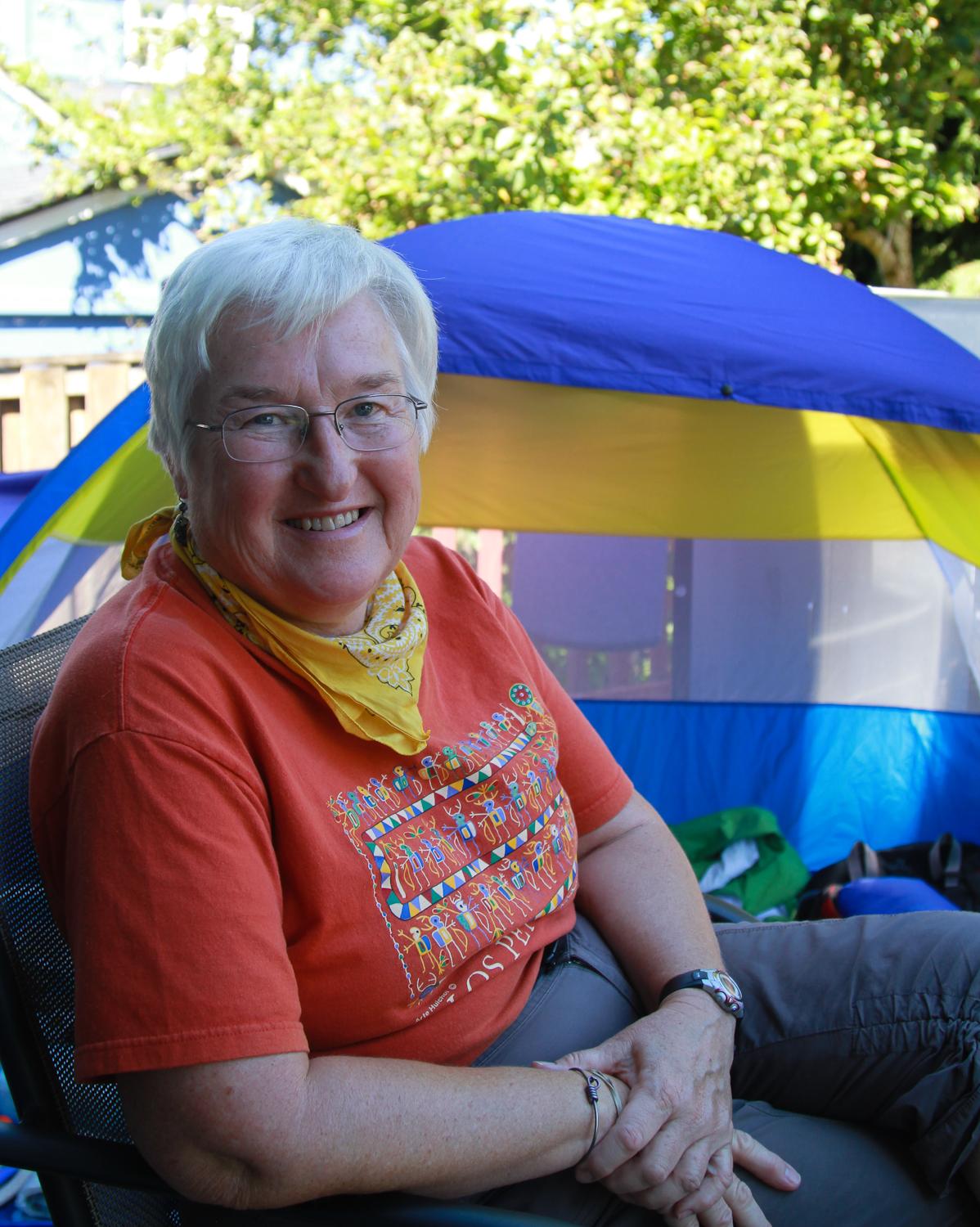
Anne Henderson, of North Portland, took part in the Red Cross Camp Prepare! exercise.
Amelia Templeton
Do you know what you absolutely need to survive the first few days after a big earthquake, or if a wildfire forced you to evacuate? Maybe it’s your medication, a water filter or some decent instant coffee.
This weekend the Red Cross is encouraging people across Oregon to put their emergency kits to the test by using them to camp, in an exercise called Camp Prepare!
Anne Henderson, a retired IT worker, slept in a shelter on her back porch in North Portland as part of the exercise. She says her kit was missing a few essentials.
"As I was having trouble staying hydrated, I thought 'Gatorade, I should have had some kind of electrolyte replacement,' she says. "And it’s going in my bag now."
Henderson says putting her together kit was easy and didn’t cost too much.
"The Red Cross has a really good list and slowly, a little bit at a time, you get an extra can of this, an extra package of that," she says.
Henderson also recommends checking out other people's kits on social media sites like Pinterest and Instagram.
You can create a personalized report of what a Cascadia subduction zone quake would feel like in your neighborhood and what you'll need to survive by visiting Aftershock, a preparedness site OPB created based on the latest quake science.
Here are a few of the key lessons the Red Cross says people learned during the 2014 Camp Prepare! exercise:
- Many kit items were out of date (food supplies, water).
- Missing items (other than three key elements – water, food and a first aid kit) were already available someplace in the home and did not require a purchase.
- New added items included plastic bags, coffee, fresh batteries, and reading glasses.
- People often realized that they did not have enough water.
